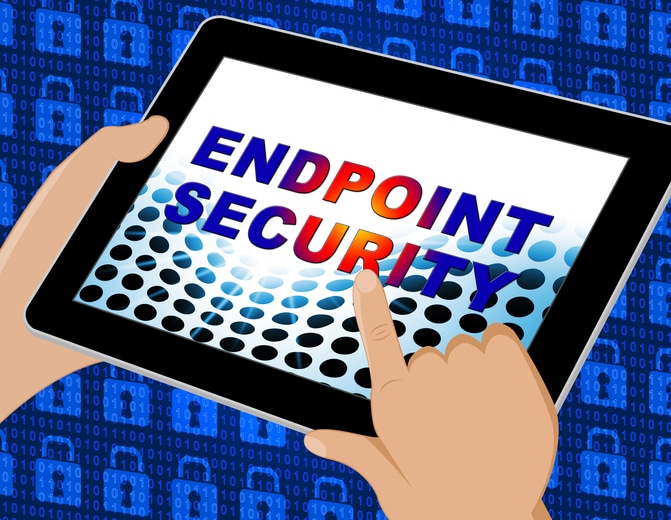Mobile Devices on Your Network? Use Endpoint Security Software
Mobile devices used for telecommuting can compromise your network. To keep your sensitive data safe, use a firewall, antivirus and endpoint security software.

In today’s mobile environment, companies that offer employees the opportunity to telecommute often gain the upper hand. But allowing workers to access your network remotely — through any number of devices and platforms — can pose security risks.
As you add laptops, smartphones and other mobile devices to your network, you also add the need for endpoint security management. Using the right software, you can identify and manage access by all the users on your network — regardless of their geographic location. To manage endpoint security effectively, you’ll need a virtual private network, specific software packages, and a way to ensure that users’ devices comply with your organizational security policies.
What steps should you take to manage the mobile devices on your network effectively, and how will your company benefit from choosing the right software?
Managing Mobile Devices
Working with telecommuting employees requires a balance between security and flexibility. Offering your team the flexibility to work from anywhere can help you attract and retain exceptional employees. At the same time, allowing open access to your systems and networks can mean significant security challenges.
Requiring your team members to log on to your systems through a virtual private network constitutes the first step in ensuring endpoint security. In addition, employees should use only mobile devices that adhere to your corporate policies — including the brands and models of devices, as well as system requirements and allowable applications.
Devices not in compliance with your policy should log on through a virtual network with limited access to your systems and proprietary information. By encrypting data and prohibiting removable storage drives, you also may avoid compromising your proprietary data.
Choosing the Right Endpoint Security Software
A reliable firewall and antivirus package should form the foundation of your endpoint security strategy. Both serve as effective tools for protecting your users while they use your network. However, they may not provide complete security in every situation. For instance, an external drive directly connected to your network can spread malware.
In addition to these vital tools, consider using endpoint security software, which provides always-on monitoring of your network.
The right endpoint security software can provide your organization with a range of benefits, including:
- Heading off problems before they impact your operation. A malware infection can place significant demands on your network resources, resulting in downtime for your business. Instead of dealing with the problems on the back end, endpoint security software catches problems early, before they have a chance to take hold.
- Protecting workers. Your IT team likely has a full workload without dealing with an intrusion into your network. By strengthening your endpoint security practices, you free up your employees to attend to other technical issues. You also keep your non-technical staff members productive and serving customers.
- Saving money. A major breach of your system can annoy — or significantly harm — your customers, resulting in increased customer service requirements and even lost accounts. The damage to your reputation can last well beyond a breach incident.

 Mon-Fri 8 AM to 6 PM Mountain
Mon-Fri 8 AM to 6 PM Mountain 888-686-3025
888-686-3025



